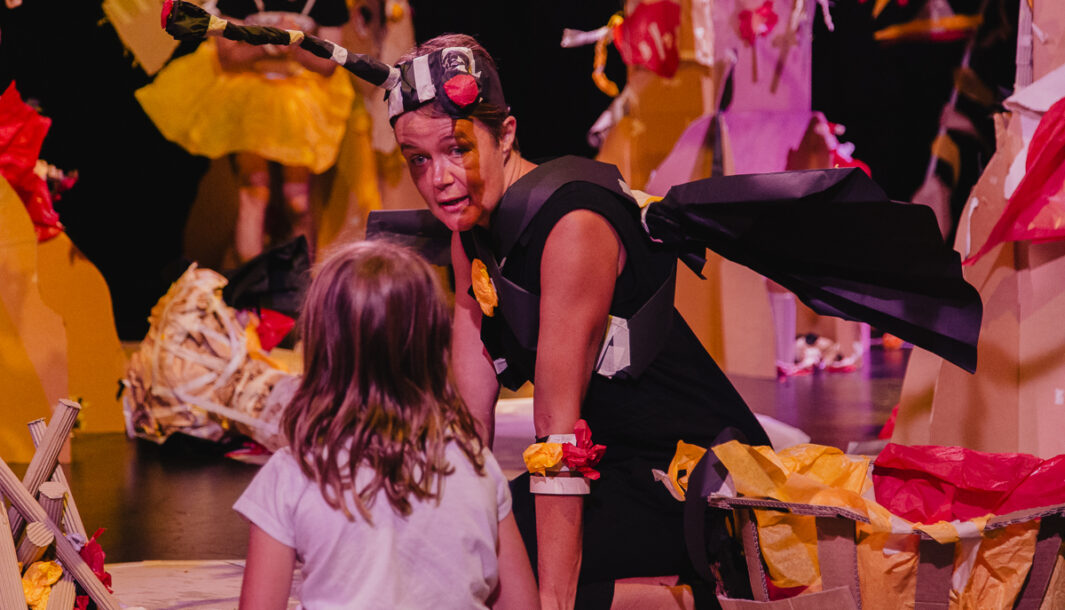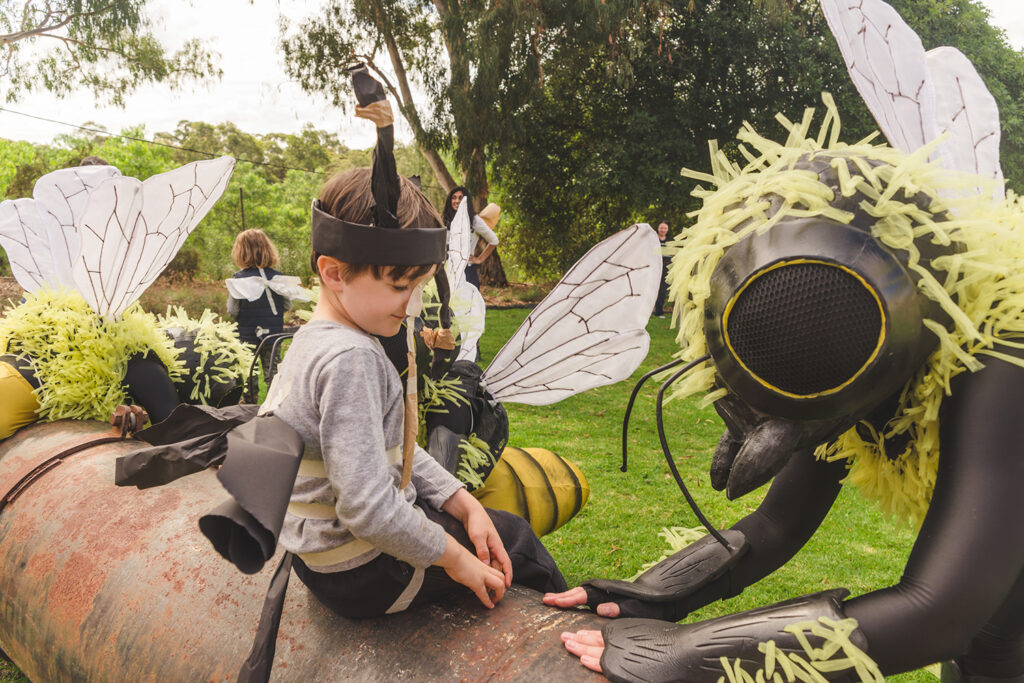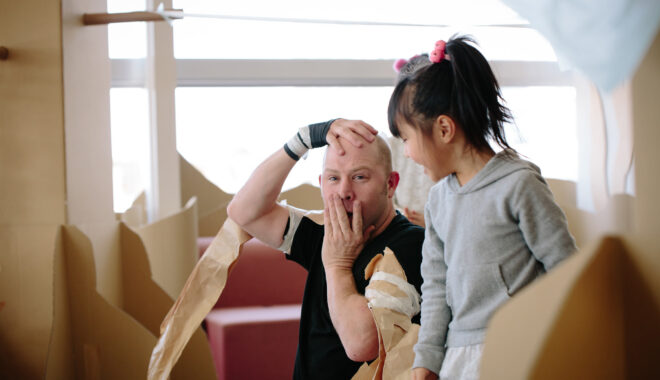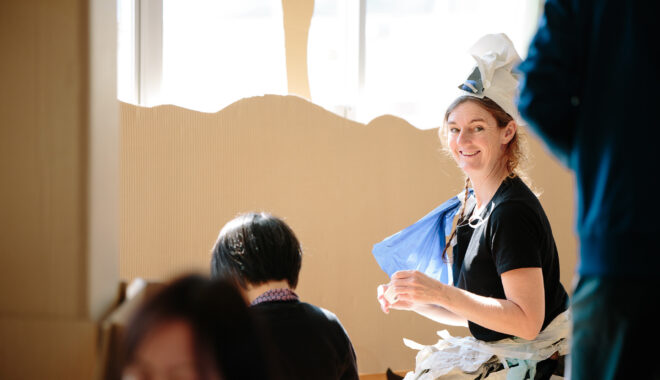23 Mar 2022 Artistic Reflections
Abbotsford Convent In Conversation with Emily Tomlins

An established actor, creator, collaborator, Emily Tomlins is the Associate Director for Polyglot Theatre. Abbotsford Convent had a chat with Emily ahead of Bees, a joyful interactive work for children, which premieres in April.
You are an accomplished and award-winning theatre-maker, actor and teaching artist. When producing works for children, what are your guiding principles as compared to ideating for adults?
The gift with children is that they are much less likely to have a fear of immersion. If you present them with something interesting or fun, they will want to approach it with curiosity, and be involved. This may take time, or it might play out in different ways for different children, but adults are already trained to sink back into their chair and expect a performance. Children approach art differently. Because we are adults making work for children, our process includes checking in with them throughout the making of a show. It becomes a collaboration with our audience right from the beginning. It has had a profound effect on how I approach making work for adults too. The guiding principles are agency and creativity. Opening a door, or asking a question and seeing what happens next.
Polyglot Theatre was started in 1978, how has the approach to children’s theatre evolved over time?
Polyglot started as Polyglot Puppets and was a puppet theatre company that created shows which primarily visited schools. When Sue Giles, our current Artistic Director, took over that role in 2000, she started to shift the company to where it is now, with our central focus on immersive and interactive experiences and theatre for children. This has also shifted the approach to making the work, which follows a child-led philosophy, which allows space for children to tell us what they want to see and experience.
In looking at previous shows, nature seems to stand out as a strong theme of Polyglot’s work. Why do you think this resonates so strongly with children?
Nature is endlessly fascinating. It is full of wonder and magic. As a child, you see the natural world as a place of freedom and play. This is why Polyglot loves to create work that can exist outdoors. It is the perfect setting for free play and discovery.
Can you tell us how the idea of Bees came about?
It’s a wild beginning actually. Our show Ants has been very successful since it premiered in 2012 and has toured extensively in the US. It was seen, on one of these tours, by a representative from Dollywood. They contacted Polyglot to express interest, but were really keen on bees because of their essential role in our ecosystems. That sparked a whole Polyglot creative process focused on bees. It was the beginning of 2020, so it became a project we worked on remotely in lockdown. It was a really wonderful way to stay connected. The creative team spent many hours researching, and creatively responding to bees. We’re not sure when we’ll get to Dollywood, but it was a project that helped a lot of us through a difficult time and we’re really proud to be premiering it at Abbotsford Convent.
What sort of experience are you hoping children and their families have at Bees? What kind of feeling would you like them to leave with?
Bees is about discovery, community and joy. I would love them to have had lots of fun and have felt a part of something bigger than themselves. I hope they go home filled with joy, wonder, excitement and still dressed as a bee… of course.
Providing all children the opportunity to access art and creativity is so important, how do we see this being practiced with Bees?
Like all of Polyglot’s shows there are lots of ways to experience Bees. Children and their families can take their time to discover the world; there is no pressure. Participants can follow their curiosity and decide the pace of exploration. They can sit and watch, they can follow the bees, they can explore the world quietly themselves, or they can become part of a buzzing community. There’s something for everyone.
After two years of intermittent activity due to COVID-9, how does it feel to be producing shows once again?
It is nothing short of incredible. I think the most joyful part of it is just seeing people back together again. We are social creatures. Making work remotely is so hard, particularly for a company like Polyglot. To finally have our audiences back, and to remember why we make this work and how joyful it is, is the absolute best.
Header photography: Jacinta Keefe, courtesy of Footscray Community Arts
This interview was originally published on the Abbotsford Convent website.

Bees – presented by Polyglot Theatre and Convent Kids
9-12 April
Heritage Garden, Abbotsford Convent
For more information, please visit polyglot.org.au/events/bees-acf-2022
Bees was developed through Polyglot’s Generator program, with support from the Victorian Government through Creative Victoria, and the Sidney Myer Fund. This season is supported by the City of Yarra.
Bees photography: Theresa Harrison







